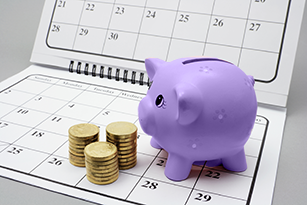
If you're involved in selling goods on platforms like eBay, Etsy, or Vinted, or if you rent out your home on Airbnb, it's important to be aware of the new reporting regulations that have come into effect. These platforms will now report your earnings to HM Revenue & Customs (HMRC), so it's crucial to understand if and how this impacts your tax obligations.
Key Aspects of the New Reporting Rules:
Automatic Reporting to HMRC: From January 1, 2024, these digital platforms are required to collect and report details about sellers’ activities, including the number of sales made and the income generated. This information will be automatically shared with HMRC by January 31, 2025, for the 2024 calendar year.
Threshold for Reporting: If you're selling goods online, platforms will report to HMRC automatically if you sell 30 or more items in a year or have total earnings over €2,000 (around £1,700). However, even if you earn less than this threshold, you may still need to pay tax if your earnings exceed £1,000.
Scope of New Reporting Measures: The new rules apply to a range of digital platforms that facilitate the sale of goods and services, property rentals, and vehicle hires. Cashback sites like Quidco and Topcashback are exempt as cashback isn’t taxable.
No New Tax, Just Increased Transparency: These changes don't introduce new taxes but increase HMRC’s ability to monitor income generated on these platforms. If your earnings from these platforms were not taxable before, and your usage remains the same, you won’t suddenly owe new taxes.
International Data Sharing: HMRC can now exchange data with tax authorities in other countries, meaning if you're making money on a platform based overseas, HMRC will be informed.
Trading Allowance: You have a 'trading allowance' of £1,000. If your total earnings from these platforms are £1,000 or less in a tax year, you might not need to report this income or pay any additional tax.
Reporting and Tax for Earnings Above £1,000: If your earnings exceed £1,000, you likely need to declare this income through self-assessment and may need to pay tax on it. This depends on the nature of your activities, whether it's trading, renting out property, or providing services.
Capital Gains Tax Considerations: Selling high-value personal items for £6,000 or more may require you to report to HMRC and pay capital gains tax.
Rent a Room Scheme: If renting out part of your home, you might be eligible for the 'rent a room' scheme, allowing you to earn up to £7,500 tax-free.
It's important to review your activities on these platforms in light of these new regulations. If in doubt, especially if you're close to the earnings limit, it's wise to consult HMRC's guidelines or use their online tools to determine if you need to report your income.

